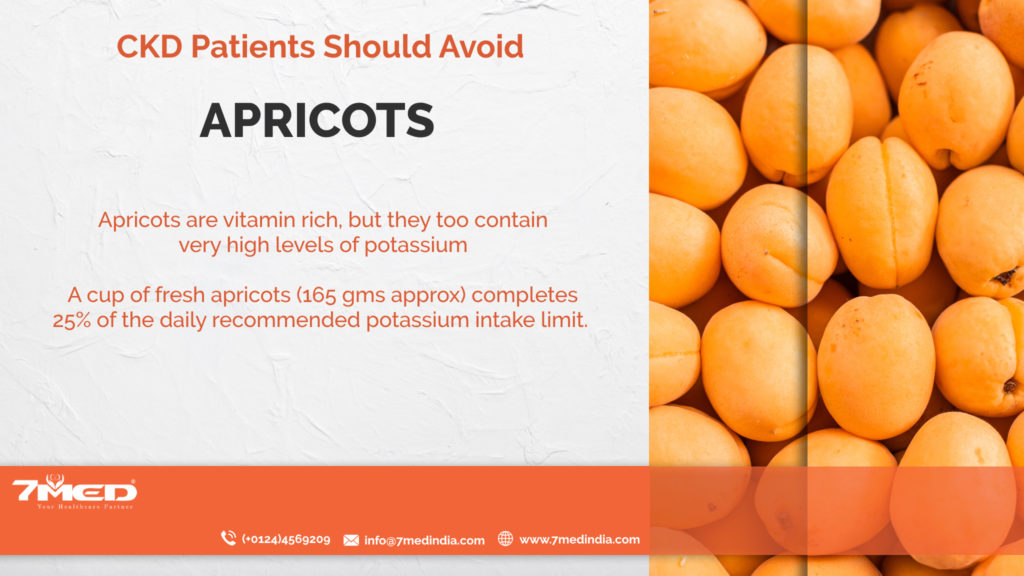5 Potassium Rich Fruits that CKD Patients Should Avoid

In this article we list a few potassium rich fruits that CKD patients should avoid. Chronic Kidney Disease (CKD) is a condition where a person’s kidneys are damaged & they gradually lose their function. This may eventually lead to kidney failure.
In this event a person requires dialysis or a kidney transplant to sustain life. Once a person is on dialysis, they need to take special care of what they drink & eat. This is because unlike healthy kidneys (that filter the blood 24/7), one can only take dialysis 3 times a week on average.
Excess potassium in body can cause weakness, numbness & tingling. Very high levels can also result in a heart attack.
Here is a list of 5 potassium rich fruits that CKD patients should avoid:
Avocados
Avocados are considered a healthy food but not in the case of CKD patients. A cup of avocados (150 grams) can provide well over 700 mg of potassium in a single go. That is enough to exceed the daily recommended 2000mg limit in less than 3 intakes.
Tomatoes
Tomatoes can be an indispensable part of most dishes. Unfortunately, they have very high potassium content per serving. An estimate shows that just 1 cup of tomato sauce (230 gm) contains greater that 900 mg of potassium which is a great threat to patients of CKD. Even a fresh medium sized (123 gm) fresh tomato contains 293 mg of Potassium.
Apricots
Apricots are fruits that have high saturation of vitamin A & C, fibers and potassium. Although the vitamin A, C & fibers are beneficial, potassium content however is alarmingly high. A cup of fresh apricots (165 gms approx) complete 25% of the daily recommended 2000 mg potassium intake limit.
Oranges
Oranges are vitamin C rich fruits that are often recommended. But due to their considerable potassium content, it is considered inappropriate for renal patients. Oranges contain great reserve of potassium by weight (184 grams of orange contain 333 mg of potassium).
Banana
Bananas are high source of energy but also contains high amounts of potassium. They should be avoided as a daily staple diet inclusion for renal patients. (118 grams contain 422 mg of potassium)
Source(s)
FIND OUT MORE
